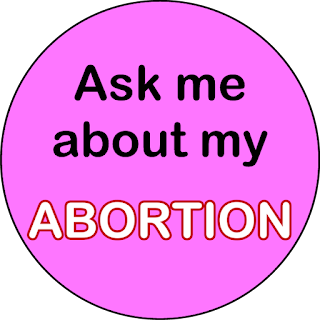I’ve been thinking about the current fight to protect access to abortions in this country. I frankly cannot understand why one’s pregnancy is anyone else’s business prior to the fetus’s being able to survive and become an actual human being outside the womb. On the other hand, I fully appreciate that trying to convince a rabidly “pro-life” partisan of this position is a bit like trying to list all the digits of pi. It is not obvious that the fight over abortion half a century after Roe v. Wade is ever going to end.
There is, however, hope. Not so very long ago, it was unclear that homosexuality would ever gain mainstream acceptance. Certainly, the approval of same-sex marriage seemed a vain hope. And yet, same-sex marriage is the law of the land, and homosexual persons are out and accepted in all walks of life. How did this come about? The answer is that homosexuals came out of the closet in large numbers, and people realized that those they loved and cared about were gay.
The general acceptance of homosexuality offers a compelling lesson to proponents of unconstrained access to abortion services. The statistic that one in four women will have an abortion in her lifetime suggests that abortions are not uncommon, but it is a fact that changes no minds among abortion opponents. The statistic becomes more compelling when actual people, not simply numbers, are revealed as abortion patients.
We have seen a trickle of prominent women, including congresswomen, declaring that they have had abortions. This is a start. If more women came forward with their abortion stories, women known and loved by abortion opponents, I believe that opposition to freely available abortions would weaken, eventually becoming an obsession with a tiny, radical minority, like proponents of a return to the gold standard.
How can we get abortion clients out of the closet? Doing so will be hard for some women. They first have to overcome the shame that society has attributed to their reproductive choice. And, in many cases, their abortions have been kept secret to avoid disclosing embarrassing liaisons. Some, however, will be willing to overcome embarrassment to promote the right to and access to an abortion.
Not every woman can go on television to tell her abortion story. On the other hand, everyone with a concern about abortion access and a little courage (maybe a lot of courage in some cases) can wear a button like the prototype shown below. What if, in any large gathering of women, many were wearing such a button? If friends and loved ones sported such a button, wouldn’t opposing abortion be harder (and somewhat itself embarrassing) to do?
 |
Could this button change minds? |
Shudder. No buttons. But I'll talk about it when the subject comes up.
ReplyDelete